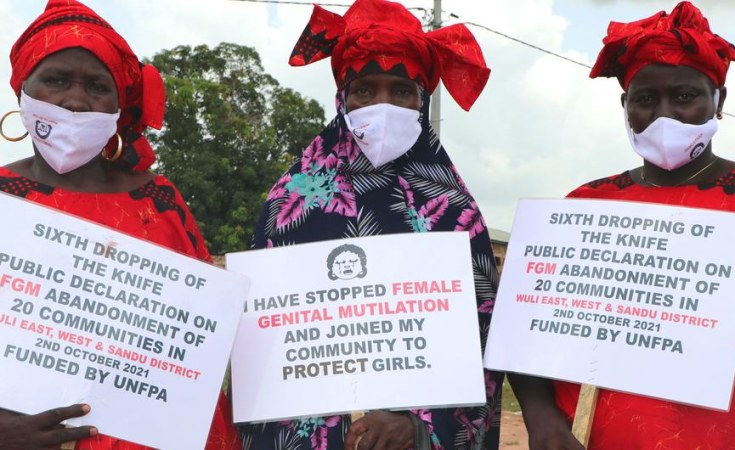The Gambia Bar Association reiterates its resolve to the commitment and advancement of rights of women and girls, while promoting the rule of law and human rights. In a dispatch sent, the Association states that the practice of FGM has "lasting harmful effects on women and girls."
The full text of the statement reads below:
The Gambia Bar Association (GBA) stands firm in its commitment to the promotion of the rule of law, human rights, and justice. It is with this mandate that the GBA addresses recent developments concerning the Bill seeking to repeal the Women's (Amendment) Act 2015, the law which prohibits the practice of female circumcision (effectively Female Genital Mutilation and Cutting-FGMC) in The Gambia. The law is a reflection of our collective commitment as a nation to safeguard the rights of girl children and women. It recognises the practice as one that has lasting harmful effects on women and girls and therefore should be upheld and promoted rather than repealed. The protection of the rights of the girl child, including the right to physical integrity, health, and freedom from violence, is non-negotiable. The Children's Act 2005 requires "the best interest of the child to be the paramount consideration by any court, institution, person or other body, in determining any question concerning a child and having regard in particular to any harm the child has suffered or is at risk of suffering".
The Bill on the other hand, poses a significant threat to The Gambia's standing and commitments under various international and regional human rights treaties and conventions including the UN Convention on the Elimination of All Forms of Discrimination Against Women (CEDAW), the Protocol to the African Charter on Human and Peoples' Rights on the Rights of Women in Africa (Maputo Protocol), UN Convention on the Rights of the Child (CRC) and The African Charter on the Rights and Welfare of the Child (ACRWC). These instruments to which The Gambia is a signatory, require the Gambia to take all appropriate measures to eliminate practices harmful to the health and well-being of women and children. A repeal of the law would undoubtedly constitute a regressive step, a blot on our nation's human rights record and complete disregard for our international and regional obligations.
The GBA regards the recent public statements of leaders among proponents of the practice calling for disobedience of the law prohibiting female circumcision, as provocative and deeply troubling. Advocating for female circumcision under any guise, directly contradicts the principles of human rights and protection of children, demonstrating lack of regard for the lives and well-being of children and calls for disobedience of the law, undermine the rule of law. The law remains in force unless and until repealed and should therefore be obeyed. The GBA urges the Inspector General of Police to issue a stern warning of the legal consequences to anyone considering violating the law and to be resolute in his offices' enforcement of the law. This is necessary to safeguard the reproductive health and well-being of women and children, as well as prevent the country from descending into anarchy.
The GBA calls upon members of the National Assembly, the Government, Civil Society, and the wider public to stand firmly in defence of the rights of the girl child and against female circumcision/FGMC and all other harmful practices. We must together uphold the principles of justice, human rights, and protection of the vulnerable, ensuring a safer, healthier, and more equitable society for all.


